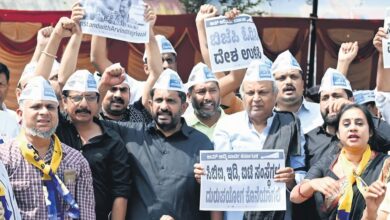Seven days after the agitation, the curfew in Banbhoolpura area was relaxed due to Haldwani violence
On Thursday, the Haldwani government said that the town of Banbhoolpura will get a few hours of relaxed curfew. The event occurred seven days after the ban was put in place in response to the unrest caused by the destruction of a “illegal” madrasa.

A notification issued by Nainital District Magistrate Vandana Singh states that the curfew in Gaujajali, Railway Bazar, and the FCI godown area would be loosened from 9 am to 4 pm.
It will be laid back for two hours, from 9 to 11 am, throughout the remainder of Banbhoolpura.
On February 8, protests over the destruction of an illegally constructed madrassa in the Banbhoolpura district erupted into violence. Residents threw stones and petrol bombs at police and municipal employees, causing many of the officers to take cover in a police station, which the crowd later set on fire.
Six rioters were slain in the incident, while the police said that over a hundred others were wounded, including media representatives and law enforcement officers.
Banbhoolpura’s curfew was implemented after the earlier lifting of the violence from the town’s surrounding districts.
A nonbailable warrant has been issued for the main accused
A non-bailable warrant was issued on Wednesday for the main accused of the Haldwani riots, Abdul Malik, who had constructed the now-demolished madrasa and prayer site in Banbhoolpura and fiercely resisted its removal.
According to authorities here, the warrant would enable police to examine his home and take any other required actions to apprehend him.
Additionally, according to police, they may now ask the court to have his property attached.
A PIL seeking a halt to the destruction, submitted by Malik’s wife Safia, was considered by the Uttarakhand High Court on Wednesday.
Prominent attorney Salman Khurshid argued before the Uttarakhand High Court on behalf of the resident of Banbhoolpura, claiming that his client ought to have had fifteen days to respond to the court order prior to the place being demolished.
Khurshid said that even though the demolition had already taken place and as a result the petitioner could not get any redress, the process had not been followed correctly per the law.
He said that the destruction took place four days after the petitioner received a notification, despite the fact that the petitioner was legally entitled to fifteen days to respond.
The next hearing on the case will take place in the second week of May after the high court requested a response from the state administration.







